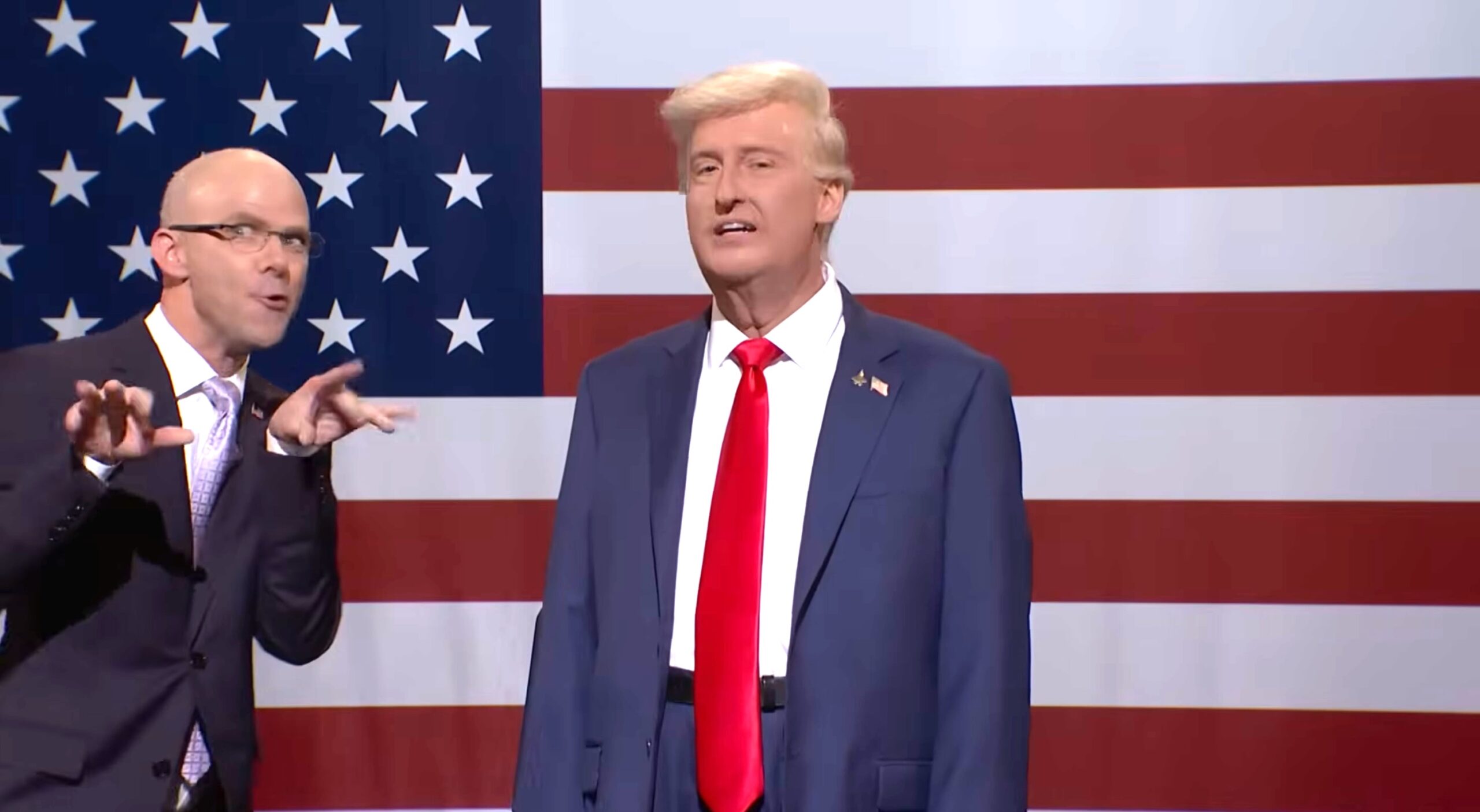UPDATE: The Season 51 premiere of Saturday Night Live has ignited a firestorm of controversy as Donald Trump threatens the late-night show over perceived criticisms, asserting that his administration is watching closely. This urgent development comes in the wake of growing concerns regarding free speech in the television industry, particularly following the temporary suspension of Jimmy Kimmel Live! by ABC amid pressure from Trump-appointed FCC Chairman Brendan Carr.
In a biting cold open aired on October 7, 2023, James Austin Johnson, portraying Trump, warned the SNL cast, “You better be on your best behavior. Otherwise they’ll have to answer to my attack dog at the FCC, Brandon Carr.” The segment featured Mikey Day as Carr, who made an eerie entrance while dancing to “Somebody’s Watching Me” by Rockwell. This unsettling portrayal underscores the chilling atmosphere surrounding late-night television under the current administration.
The stakes are high for SNL, especially after a tumultuous summer in late-night television. Just two months after the Season 50 finale, Stephen Colbert announced the cancellation of The Late Show with Stephen Colbert. Meanwhile, Kimmel’s show faced a brief suspension due to remarks deemed offensive by the Trump administration, raising alarms among fans about SNL potentially softening its critical tone.
During the skit, Trump made a veiled reference to the show’s only Latino cast member, Marcello Hernández, stating, “You fellas are gonna keep an eye on Marcelo for me, right?” The implication was clear: the administration is keeping a close watch on the show’s content. Trump concluded with a chilling reminder, “Daddy’s watching!”
This latest episode highlights a significant trend in late-night television, where fear of censorship looms large. Fans and critics alike are left questioning whether SNL will maintain its critical stance in light of these threats. The cold open served as a defiant response to growing concerns over free expression in comedy, with SNL aiming to reassure its audience that it will not back down.
As the situation develops, viewers are urged to stay tuned for further updates on how this ongoing tension between the Trump administration and late-night TV will unfold. Will SNL continue to push the envelope, or will the looming threat of FCC retaliation force a change in its approach? The implications of this are far-reaching, affecting not just SNL, but the entire landscape of televised comedy in America.
IN SUMMARY: The SNL premiere signals a critical moment in late-night television, as Trump’s threats raise questions about free speech and creative expression. Stay connected for the latest developments in this evolving story.
